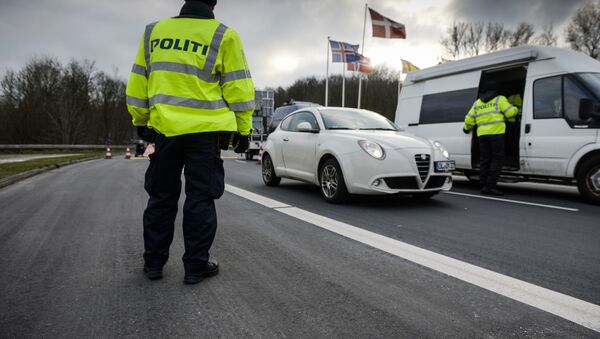The four-fold rise in Georgian asylum seekers was followed by a five-fold increase in crimes committed by Georgians, Danish Radio reported.
In the first nine months of this year, the number of Georgian asylum seekers has quadrupled, jumping from 75 in 2017 to 303 applications so far in 2018.
The somewhat surprising surge has been attributed to a deal struck by Danish Foreign Minister Anders Samuelsen, who promised monetary assistance to the ongoing Georgian reform process.
So far this year, the Danish Migration Board has processed about 200 asylum cases involving Georgian citizens, rejecting half of them. The other half ended without a decision, typically because the applicant has disappeared before a ruling was presented.
READ MORE: Romanian Gang Busted in Norway After Break-In Tour Targeting Elderly Women
At the same time, the Danish police indicate that the number of charges brought against Georgian asylum seekers has jumped five-fold, fueling crime concerns.
"Unfortunately, we can see that the crime rate among asylum seekers from Georgia exhibits fairly strong growth, and it's something we must focus on," Deputy Police Inspector Lars Mortensen from the National Investigations Center told Danish Radio.
While some of the charges deal with minor crimes such as shoplifting, some of the Georgians that have entered Denmark have been flagged by police as "organized criminals."
In 2016, the EU and Georgia entered into a visa waiver agreement, and Georgians may now reside for up to 90 days at a time within the Schengen area without a visa. Since then, several countries have experienced a sharp increase in the number of asylum seekers from the former Soviet republic.
READ MORE: Police Urge Swedes to Stay Vigilant as 'Foreign Burglar Gangs' Terrorize Country
The problem was admitted by Georgian ambassador to Denmark Gigi Gigiadze. He ascribed it to Georgian citizens being "misled" about the easiness of obtaining asylum in the country. Gigiadze also admitted that some Georgians are out to commit "petty crime" in Denmark. According to Gigiadze, a possible solution would be to place Georgia on the list of "safe countries" whose citizens aren't eligible for asylum in the EU. Gigiadze recalled a period from 2017 when Georgians suddenly topped the list of asylum seekers to Iceland. This was effectively ended by Iceland labeling Georgia "safe," the Danish tabloid daily BT reported.
The claims by the Danish police are echoed by Germany and Sweden, which earlier this year also also saw a spike in Georgian applicants followed by a commensurate rise in crime.
Police in the German state of North Rhine-Westphalia warned this winter of a steadily increasing number of Georgian asylum seekers, who simply used the waiting period in the asylum system to commit crime in Germany.
Also in January, the Swedish Migration Board informed that Georgians had become the second largest group of asylum seekers. It also found that many Georgians "only apply for asylum to extend their stay in Sweden."
Germany and Sweden dealt with the problem by threatening visa restrictions, after which Georgian President Giorgi Margvelashvili promised to look into the matter.
READ MORE: 'Please, Say This Is a Joke': Swedes Mock Police's 'Stop Shooting' Initiative
Unlike the petty crimes and sexual violence associated with Europe's refugee crisis, Georgian criminals in the EU commonly operate as part of well-organized mafia syndicates. These racketeers originated as Soviet-era "thieves in law," who teamed up to rule the criminal underworld within Soviet-era prison camps. In April, four Georgian criminal bosses and 34 Georgian members of criminal groups were detained in France and Greece by police, in cooperation with the Georgian Interior Ministry, the news outlet Agenda reported.




